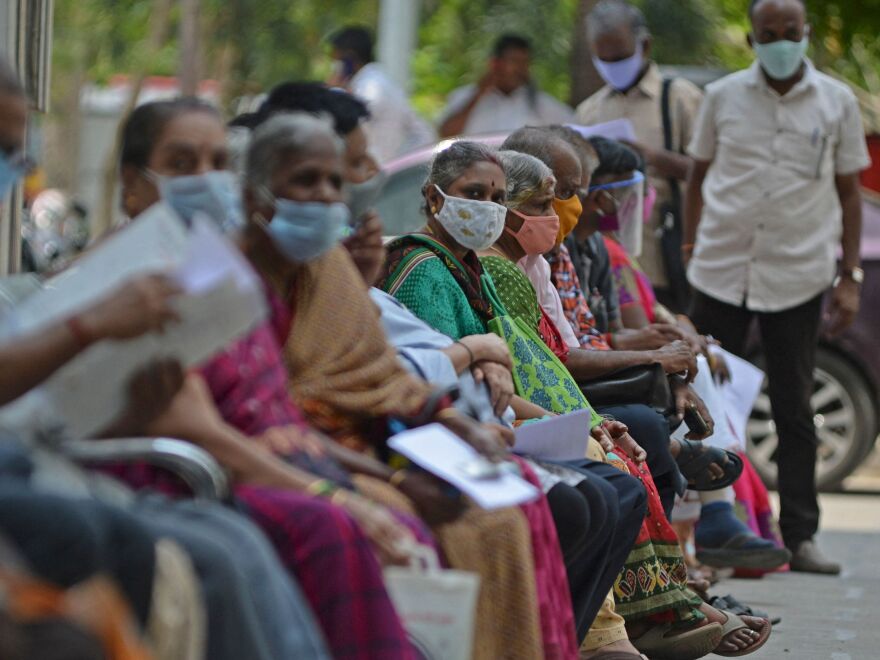It's no secret why poor countries don't have as many vaccines as rich countries.
"There's really just a scarcity of doses," says Kate Elder, senior vaccine policy adviser at Doctors Without Borders' Access Campaign. The question is, how do you fix it?
In the U.S., more than 1 out of every 5 residents is fully vaccinated against COVID-19. The U.S. and several other wealthy nations, including Canada and many European Union member states, are on track to vaccinate most of their populations by mid-2022, according to a report from The Economist.
But elsewhere in the world, vaccination rates are much lower. The entire continent of Africa, for example, has administered just 2% of the world's vaccine doses so far. Some poor nations including Haiti have yet to receive a single vaccine dose.
"If we had decided to adhere to what the World Health Organization has recommended — which is that frontline health care workers and other most vulnerable people should be vaccinated first, regardless of where they live — we would have distributed these vaccines very differently," Elder says.
Instead, vaccines were spoken for before they even existed as wealthy countries bought a tremendous amount of the world's supply.
In an interview with NPR's All Things Considered, Elder spoke about vaccine inequity and what she thinks wealthy nations like the United States can do to address it right now.
This interview has been edited for length and clarity.
Interview Highlights
On how the vaccine rollout is progressing in poorer countries
It's pretty devastating. While we here in the U.S. are very optimistic about when we'll achieve this thing called herd immunity, many of my colleagues working at Doctors Without Borders in developing countries are only just starting to see some vaccines — small volumes — arrive in countries where even the most vulnerable people [and] frontline health care workers, haven't yet been able to be vaccinated.
In high-income countries like the United States, almost 1 in 4 people has been vaccinated. In low-income countries, places where Médecins Sans Frontières is working, it's 1 in more than 500 people who has been vaccinated. The global mechanism that's supposed to deliver equity of vaccination, called COVAX, was expecting at this point to have distributed about a hundred million doses by the end of March. But to date, it's only been able to distribute about 38 million doses.
On the argument that U.S. taxpayers, who contributed a significant percentage of funding for development of several of the coronavirus vaccines, should be able to access those doses before residents of other countries
We did put a tremendous amount of public funding into the development of these vaccines — but it's not an either/or. ... From a public health perspective, although we might be protecting ourselves at quite a rapid rate here in the U.S., it's actually not, at the end of the day, in our self-interest. We shouldn't rest on our laurels once we, you know, achieve herd immunity in the United States. We're still just as susceptible to the variants as well. So it's really in our collective best interest to make sure that everybody around the world is protected.
On what the United States can do now to help increase the supply of vaccines available to poorer countries
Urgently, the U.S. government has to allocate some of our supply to COVAX. We're estimating that by July, there will be a surplus of almost up to half a billion doses in the United States. In tandem with that, if the U.S. government could use its pressure to push companies like Pfizer, Moderna, Johnson & Johnson to share that technology with other competent manufacturers that can be producing vaccines around the world, it wouldn't be an either/or. We would have more vaccine for everybody.
Copyright 2021 NPR. To see more, visit https://www.npr.org.





